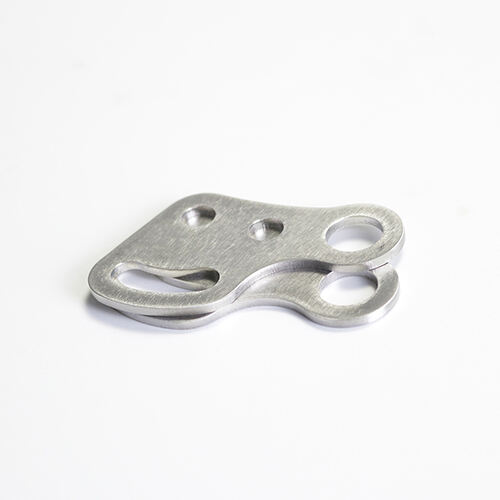CNC Services: A Game-Changer in Modern Manufacturing
April 16, 2025 — In today’s fast-paced world of manufacturing, CNC services are quickly becoming the cornerstone of precision, efficiency, and innovation. With industries ranging from aerospace and automotive to consumer goods and healthcare, the need for high-quality, cost-effective, and customized manufacturing solutions has never been greater. Computer Numerical Control (CNC) technology offers a solution by automating the production process, delivering high precision, and streamlining complex manufacturing tasks.

What Are CNC Services?
At its core, CNC services involve the use of computer-controlled machines to execute a range of manufacturing tasks. From milling, drilling, and turning to laser cutting, waterjet cutting, and even 3D printing, CNC machines follow digital instructions (often written in G-code) to precisely shape and cut materials like metal, wood, plastic, and composites.
While CNC machines have been around since the 1950s, the ongoing advancements in software, robotics, and automation are now transforming CNC services into more than just a manufacturing tool—they’re a key enabler of customization, rapid prototyping, and mass production.
CNC Services: Fueling Innovation Across Industries
· Aerospace: Precision Meets Safety
In aerospace manufacturing, precision is paramount. Every part, from turbine blades to engine components, must meet extremely tight tolerances and perform under the harshest conditions. CNC services are an indispensable tool in this industry, enabling manufacturers to produce highly complex parts with high accuracy.
CNC machines are particularly useful for multi-axis milling, a process that allows manufacturers to create intricate geometries and complex shapes with ease. Aerospace engineers can use CNC to produce components from advanced materials like titanium, which require both precision and strength.
· Automotive: Speed, Efficiency, and Customization
The automotive industry is another sector that heavily relies on CNC services. Automotive manufacturers depend on CNC for both high-volume production of standard parts, like engine blocks, as well as the production of custom parts for niche models, concept cars, or limited-edition releases.
CNC services also play a key role in the electrification of vehicles. With the rise of electric vehicles (EVs), CNC technology is being used to produce parts like battery housings and electric motor components, often made from lightweight materials like aluminum and composites.
Moreover, the demand for personalized and customized vehicles has never been higher. CNC services enable auto manufacturers to offer bespoke options—everything from custom interior components to limited-edition body parts—without compromising on production speed or cost-effectiveness.
· Consumer Goods: Customization on Demand
From furniture to electronics, the consumer goods sector is increasingly turning to CNC services to meet the growing demand for personalized products. With the rise of e-commerce and the desire for one-of-a-kind items, CNC services enable companies to offer tailored solutions for their customers.
For example, furniture designers can use CNC machines to create custom wood designs with intricate patterns, while jewelry makers can produce detailed, personalized pieces with speed and precision. Additionally, limited edition runs of consumer products are now easier to produce thanks to CNC's ability to create unique designs with low overhead costs.
The Advantages of CNC Services
1.Unmatched Precision and Quality
CNC services are well-known for their ability to deliver parts with exceptional accuracy. Because the process is automated, human error is significantly reduced, ensuring that each part produced is consistent and meets the exact specifications of the design. Whether it’s for a small batch or large-scale production, CNC machines can repeat the same process with identical results every time.
This level of precision is crucial in industries like aerospace, automotive, and healthcare, where even the smallest deviation can have serious consequences.
2.Cost-Effectiveness for Businesses of All Sizes
Historically, CNC machinery was expensive and mainly used by large manufacturers. However, advances in technology have made CNC services more affordable and accessible to businesses of all sizes. Small businesses, startups, and hobbyists can now take advantage of outsourced CNC services to create high-quality prototypes and small production runs without having to invest in costly equipment.
For example, a jewelry designer or a custom furniture maker can send their designs to a CNC service provider and receive precisely manufactured components without the need for expensive in-house machinery. The ability to outsource manufacturing allows businesses to focus on design, marketing, and other aspects of growth while leaving the complex production work to the experts.
3.Faster Turnaround Times and Enhanced Efficiency
One of the biggest benefits of CNC services is their speed. Once a design is input into the CNC system, parts can be produced quickly and with minimal oversight. This is particularly valuable in industries like rapid prototyping and custom manufacturing, where businesses need to get products to market faster.
The automation involved in CNC also allows machines to run around the clock, resulting in significantly faster production cycles. This is critical for industries where time-to-market is a key competitive advantage, such as consumer electronics and automotive.
4.Scalability for Mass Production
CNC services are also highly scalable, meaning that businesses can easily shift from producing a small batch to large-scale manufacturing with the same equipment. Whether a company needs one prototype or 100,000 parts, CNC machines can handle both without significant downtime or additional costs.
The scalability and flexibility of CNC services make them ideal for industries that require frequent changes in production volume or customization, such as fashion, electronics, and medical devices.
The Future of CNC Services
As CNC technology continues to evolve, so too do the capabilities and services offered by CNC providers. Key trends shaping the future of CNC services include:
Integration with Artificial Intelligence (AI) and Automation
Incorporating AI into CNC machines allows for smarter, data-driven manufacturing. AI-powered CNC systems can analyze production data in real-time to optimize processes, detect potential issues before they arise, and increase overall efficiency.
Additionally, CNC systems are becoming more automated through the integration of robotics and collaborative robots (cobots), which can work alongside human operators. This reduces labor costs, increases production speeds, and enhances safety on the factory floor.
Additive Manufacturing (3D Printing)
The integration of 3D printing with CNC services is another exciting development. Hybrid CNC machines that combine subtractive and additive manufacturing capabilities allow for the rapid creation of complex, lightweight parts that would be impossible to produce using traditional methods.
This is especially valuable in industries like aerospace, where parts often require intricate geometries or specialized materials that traditional CNC machines might struggle with.
Conclusion
CNC services are transforming the way products are designed and manufactured, offering businesses the ability to produce high-quality, customized, and cost-effective solutions. From aerospace to consumer goods, CNC technology has proven to be an essential tool for industries across the globe.
As the industry continues to evolve with innovations like AI, automation, and 3D printing, the future of CNC services looks even brighter. For businesses looking to stay ahead in a competitive market, embracing CNC services will be key to driving innovation and achieving operational excellence.


